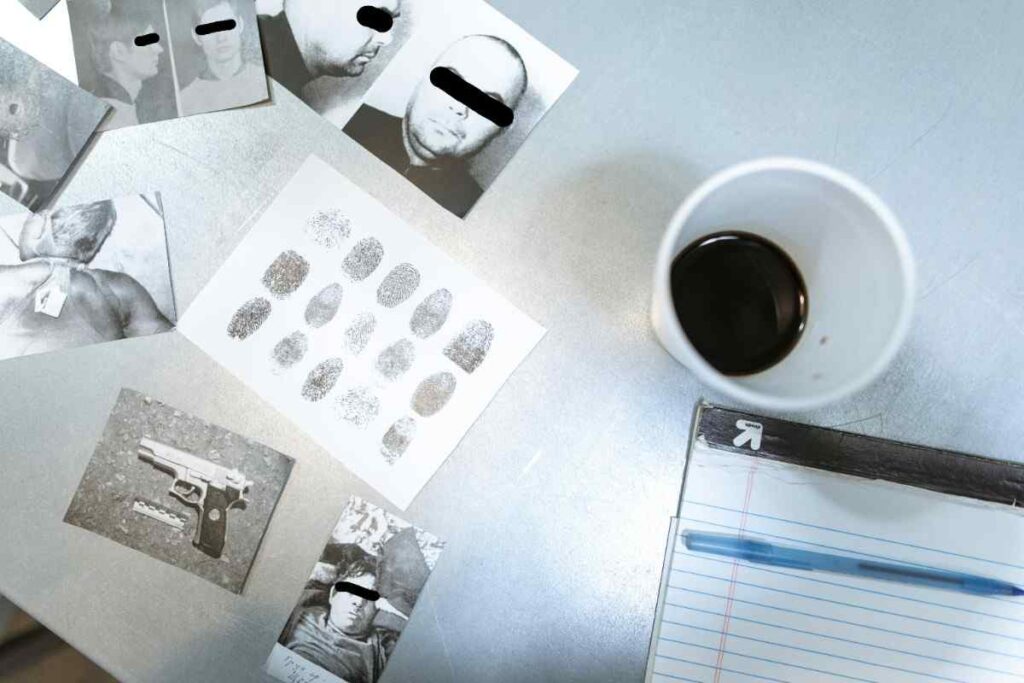Introduction: Decoding Justice with Science
Forensic Science is the gripping field that applies scientific principles to solve crimes, uncover truth, and deliver justice, bridging the gap between science and law. It’s a dynamic discipline combining analytical rigor, investigative skills, and ethical responsibility to analyze evidence and support legal systems. Whether you aspire to become a forensic scientist, crime scene investigator, toxicologist, or forensic psychologist, Forensic Science offers a fulfilling career with profound societal impact. This article will guide you through the essentials of Forensic Science, from its core principles to the skills and courses needed to excel. Moreover, it will highlight how Aime Connect’s education portal can support your journey with tailored resources. So, if you’re ready to uncover the truth, let’s explore Forensic Science.
Decoding Forensic Science: What Is It All About?
At its core, Forensic Science involves the application of scientific methods to analyze physical evidence in criminal and civil investigations. It encompasses disciplines like forensic biology, chemistry, toxicology, ballistics, and digital forensics, addressing questions such as identifying DNA profiles or determining the cause of death. For instance, you might analyze blood spatter patterns or recover data from a suspect’s device. Additionally, it employs techniques like chromatography, spectroscopy, and digital analysis to ensure accuracy. Modern Forensic Science integrates advanced technologies, such as AI-driven evidence analysis and 3D crime scene reconstruction, to enhance investigations. Furthermore, it fosters precision, ethical judgment, and collaboration with law enforcement. By pursuing Forensic Science, you’re not just analyzing evidence—you’re upholding justice.

Charting Your Course: How to Become a Forensic Science Professional
To become a Forensic Science professional, you need a blend of education, technical expertise, and a passion for truth. Start with a high school education strong in biology, chemistry, and mathematics, followed by a bachelor’s degree in Forensic Science, Biology, Chemistry, or a related field like Criminal Justice. Advancing to a Master’s or Ph.D. in Forensic Science is often recommended for roles in specialized research, academia, or leadership positions in crime labs. Practical experience through internships in forensic labs, police departments, or coroner’s offices is crucial. Additionally, certifications like the American Board of Criminalistics (ABC) or digital forensics credentials enhance credibility. Networking through forensic science conferences or platforms like Aime Connect opens opportunities. By combining education, training, and connections, you’ll build a clear path to a forensic career.
Skills That Crack Cases: What You Need to Succeed
To thrive in Forensic Science, you need a robust skill set blending technical, analytical, and interpersonal abilities. Proficiency in laboratory techniques, such as DNA extraction, toxicology screening, or ballistic analysis, is essential for processing evidence accurately. Moreover, strong analytical skills, including data interpretation and statistical analysis, ensure reliable conclusions. Attention to detail and critical thinking are vital for reconstructing crime scenes or identifying inconsistencies. Additionally, familiarity with tools like forensic software, mass spectrometers, or digital forensic platforms enhances investigative capabilities. Adaptability keeps you aligned with trends like cyber forensics or forensic genomics. Communication skills convey findings clearly in court reports or testimony. By honing these skills, you’ll become a dynamic forensic scientist ready to solve complex cases.
Fueling Your Forensic Journey: Recommended Forensic Science Courses
Aime Connect offers a range of Forensic Science-related courses to support your aspirations. For beginners, introductory courses in forensic fundamentals cover crime scene investigation, evidence collection, and basic lab techniques. If you’re seeking specialization, programs in forensic biology, digital forensics, or forensic toxicology dive into advanced topics like DNA profiling or cybercrime analysis. Additionally, courses in forensic data analytics teach you to leverage AI and machine learning for evidence processing, a growing trend. For leadership roles, modules in forensic lab management or legal aspects of forensics align with career goals. Each course blends theory with practical tools like virtual crime scene simulations, ensuring readiness. Explore Aime Connect’s portal for expert-led programs tailored to your Forensic Science journey.
Career Horizons: Job Scope and Placement in Forensic Science
Forensic Science offers diverse career paths across law enforcement, research, legal systems, and private industry. Roles like forensic scientist, crime scene investigator, forensic toxicologist, or digital forensic analyst are in demand as justice systems rely on scientific evidence. Moreover, emerging fields like forensic entomology and cyber forensics create exciting niches. With a Forensic Science qualification, you can work in crime labs, police departments, private forensic firms, or government agencies like the FBI or CBI, with competitive salaries and global opportunities. Aime Connect enhances your employability through placement support, connecting you with top employers. Whether starting as a forensic technician or aiming for a Chief Forensic Scientist role, Forensic Science promises a vibrant career.
Global Opportunities: Best Countries for Forensic Science Careers
Certain countries stand out as Forensic Science hubs due to their advanced forensic infrastructure and legal systems. The United States, with agencies like the FBI and leading forensic labs, excels in research and investigation. Similarly, the United Kingdom, with its robust forensic networks, supports roles in digital and biological forensics. Australia, known for its forensic advancements, offers opportunities in crime scene analysis and toxicology. Additionally, Canada’s focus on forensic innovation fosters careers in cyber forensics and forensic psychology. These countries offer high salaries, state-of-the-art facilities, and global recognition. Aime Connect’s globally relevant courses prepare you for certifications valued in these top markets.
Time to Investigate: Duration of Forensic Science Courses
The duration of Forensic Science programs varies by level. A bachelor’s degree in Forensic Science or a related field typically takes three to four years, combining theoretical study and lab work. A Master’s in Forensic Science spans one to two years, focusing on specialized research. Doctoral programs, like a Ph.D., take three to five years, including advanced studies and dissertation work. Supplementary certifications, like digital forensics or forensic DNA analysis, require three to six months. Aime Connect offers flexible preparatory courses (one to six months) for foundational skills or specialized topics like forensic anthropology. Accelerated programs cater to professionals balancing commitments. By choosing a course that aligns with your goals, you’ll efficiently launch your Forensic Science career.
Learning Your Way: Online vs. Offline Forensic Science Courses
Choosing between online and offline Forensic Science courses depends on your needs and career stage. Online courses, available through Aime Connect, offer flexibility, ideal for preparatory students or professionals seeking certifications, with access to recorded lectures and virtual lab simulations. Conversely, offline bachelor’s, master’s, or doctoral programs, offered by universities, provide hands-on training through physical labs and crime scene exercises, critical for core education. However, supplementary offline courses may require fixed schedules and travel. Online learning integrates tools like virtual evidence analysis platforms, ensuring practical exposure. For preparatory and supplementary studies, online courses balance convenience and quality, especially with Aime Connect’s innovative digital platform.
Aime Connect’s Advantage: Special Features for Your Success
Aime Connect transforms Forensic Science education with features tailored to your investigative and scientific ambitions. Firstly, personalized learning paths ensure courses align with your career goals, whether entering a bachelor’s program or advancing with a master’s or doctorate. Additionally, interactive tools like virtual crime scene reconstructions and forensic analysis simulations bridge theory and practice. You’ll also benefit from expert mentorship, with



